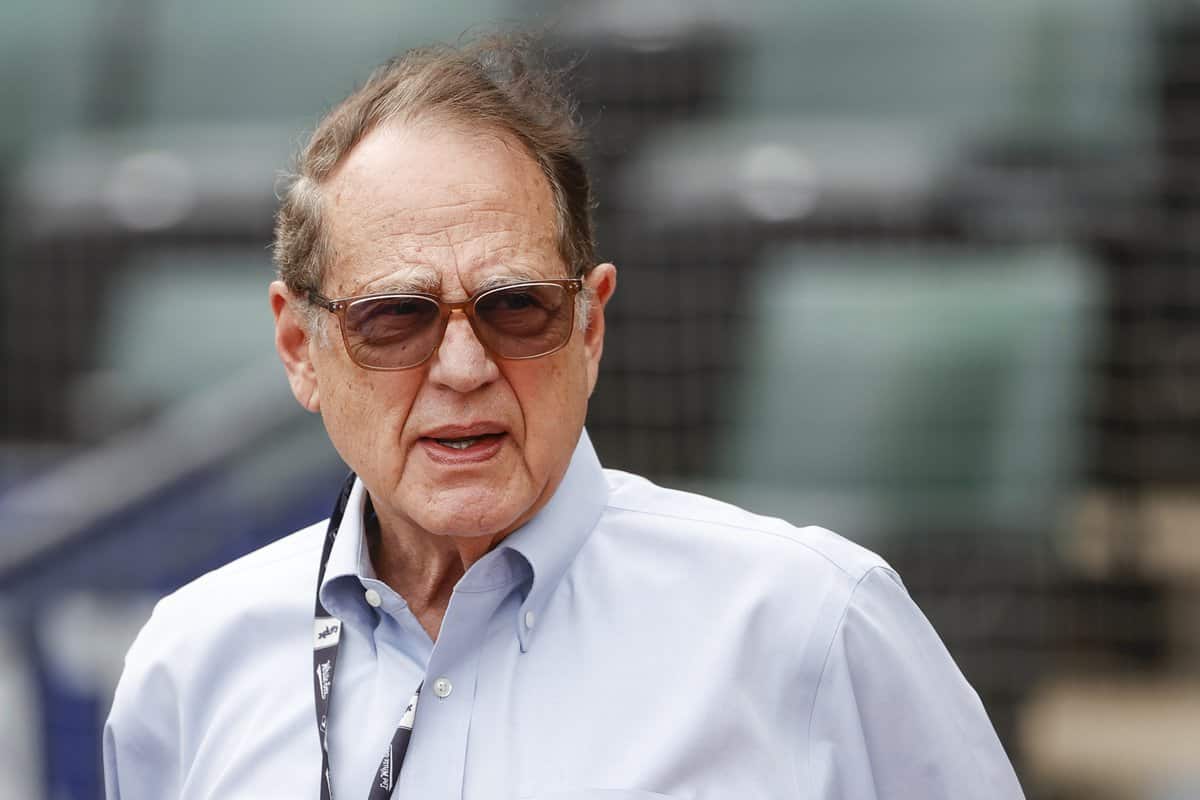Whether Jerry Reinsdorf is actually entertaining the notion of selling the White Sox or is merely posturing for a leverage ploy, Britt Ghiroli's report for The Athletic broke new ground on a very old question.
A couple years ago, Jon Heyman poked at a rumor that Reinsdorf was interested in selling, and he received a very Reinsdorfian response.
There’s been a rumor that Jerry Reinsdorf might consider selling the White Sox. Though that’s unconfirmed, when I reached out to Reinsdorf by email, he responded, “Make me an offer?”
Ghiroli's report rises above a rumor or idle speculation because it identifies a potential buyer in Dave Stewart, and it's been met with no statements from either side. My brain has taken to filling in the silence with a couple of public comments Reinsdorf made about his business that didn't age the way he wanted.
The first was his correct assessment of the broadcast landscape at the Milken Institute panel back in May 2023, which was about a year and a month before the White Sox, Bulls and Blackhawks announced the formation of the Chicago Sports Network (CHSN). The transcription of the full comment provided by Mark J. Burns:
"We were getting away with murder with the cable bundle. Basically people were paying for sports who didn't really want the sports."
He added, "There is basically near panic, I think, at least in MLB and a little bit in the NBA because where are we going to replace this money in the short term? Nobody really knows, but it certainly is not immediately direct to consumer streaming. There is also a problem because we still have the cable bundles. The cable distributors who are still around and still carrying the games, they don't want us to stream direct to consumer because that hurts their business.
"The only word I can think of to describe what's going on in TV now is chaos and fear, maybe fear."
That day has arrived for the Blackhawks and Bulls, and it turns out the landscape is as chaotic as Reinsdorf said. The White Sox don't have to worry about how fans can watch their games for another five months, but the Blackhawks and Bulls are reckoning with regular-season reality right now, and the climate is brutal.
One week into the Blackhawks’ season, the team’s new TV network has yet to reach a carriage agreement with Comcast. That appears unlikely to change before the home opener Thursday.
That scenario would’ve been tough to imagine a year ago, but the difficulties that Chicago Sports Network — which launched Oct. 1 as the new home of the Hawks, Bulls and White Sox — has encountered in negotiations with the area’s dominant cable provider has made it a reality.
CHSN hasn’t reached carriage agreements with streaming services Hulu and Fubo, either, and is not expected to ever reach one with YouTube TV, which has distanced itself from regional sports networks in general.
Technically unrelated but spiritually adjacent is what he said about his decision to promote Chris Getz to general manger without interviewing any outside candidates:
“Even though I had a list of outside people who I felt could do the job, I also had a list of one among the inside people who I felt could do the job as well as anybody I was going to interview. I didn’t have to interview these people because I knew them all, and I knew that they were qualified, but what I didn’t know was I had somebody inside who could start right away making things happen, and that’s the reason why Chris was selected.”
What Getz made happen right away was the losingest season in modern MLB history, and Reinsdorf had to issue another statement explaining why things weren't as bad as they looked, because Getz was overhauling things Reinsdorf has never, ever prioritized:
Chris is rebuilding the foundation of our baseball operations department, with key personnel changes already happening in player development, international scouting, professional scouting and analytics. Some of these changes will be apparent quickly while others will need time to produce the results we all want to see at the major-league level.
If you adhere to the Cigar Aficionado description of Reinsdorf's dream -- "to create a World Series winner in a business climate that made sense to him" -- then this has to be a nightmare. Reinsdorf used to be able to sit back, smoke cigars and watch his friends put together OK teams while he received more money from cable companies and public coffers than he knew he deserved.
Now, his vision is being rejected at every turn. Comcast doesn't want to put his games on the cheaper tier. The state doesn't want to give him another $2 billion after the way he botched the last handout. MLB teams took turns embarrassing his on-field product, and by the end of the season, some White Sox fans were actively rooting against their own team.
The business climate makes no sense. The business climate isn't fun. The business climate sucks. If he was finally driven to admit that he no longer had the answers and wanted to cash out on his $20 million investment before it loses more value than he'd give up in taxes, you couldn't blame him. In fact, that would make him the most human he's ever been.
Except there's the South Loop project.
The White Sox and Related Midwest aren't taking "no" for an answer, continuing to flesh out a ballfield and other recreational areas on the proposed site in The 78 lot despite a lack of documented positive feedback with regards to paying for it. If the developer is the one driving and the White Sox are merely letting them do 75 percent of the legwork, then perhaps Reinsdorf is content to let the next ownership group fight that battle, or drop it.
But if Reinsdorf truly sees the South Loop site as the make-or-break moment to transform the value of his franchise for generations to come, and is once again willing to spite the neighborhood to save his portfolio, then invoking the possibility of a sale -- to Stewart's group or another party; Justin Ishbia, to name an alternate candidate -- is merely the biggest stop he could pull at this juncture. That's a lot more in line with his public history of ownership, which is as consistent as it is unrelatable.
That said, exiting the stage now would create a perfect symmetry for his ownership of the White Sox. When he took over the team, the franchise was beset by questions about its willingness to spend, its longterm home and how fans could watch the games. Despite winning the franchise's first World Series in 88 years, he'd be leaving them exactly how he found them.






